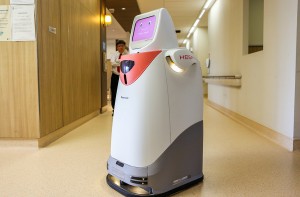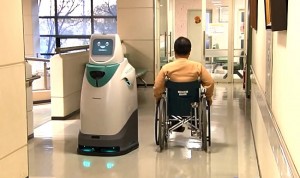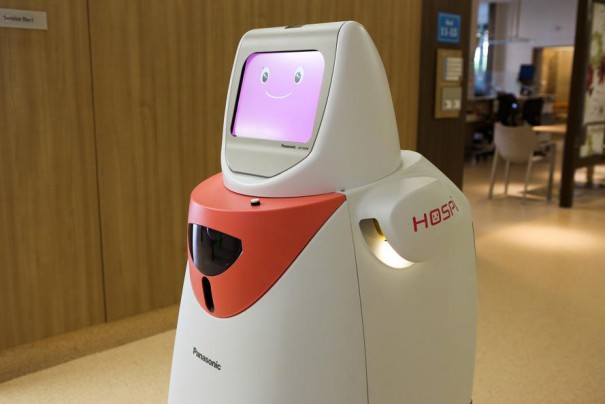The Panasonic Hospi robot helps in the delivery of medicines at the Changi hospital
The Changi General Hospital is the first center, Out of Japan, In the Panasonic hospital robot is being used. A system that helps in the distribution of medicines to patients and in communications with health personnel.
Panasonic System Solutions Pacific Asia (PSSAP) And the Changi General Hospital (CGH) In Singapore they are applying care technology to improve the operational efficiency of a hospital.
This is the first hospital center, Out of Japan, that uses the development of Panasonic called Hospi. A project, developed already a few years ago and that it is being used experimentally since last February in the center of Changi and is introduced by phases. Today, four robots are already operating that are part of the hospital management system and that they are responsible for delivering fragile medicines and large quantities, medical samples and clinical records twenty -four hours a day.
 Hospi is equipped with security functions to avoid improper manipulation, Theft and damage. Your information can only be accessed by identification cards.
Hospi is equipped with security functions to avoid improper manipulation, Theft and damage. Your information can only be accessed by identification cards.
The automation with which it has been designed, It allows Hospi to use the elevators and move between the facilities in the main building of the CGH and the building integrated into itself, To deliver medicines and samples.
Hospi is equipped with a screen of some 20 inches, sensors and a hard drive store hospital maps to avoid obstacles, as patients in wheelchairs, And know what areas the medications have to transport and take them at the exact time in which the patient should take them. It is also possible to program, in advance, New routes through the hospital, which increases flexibility.
 It is an autonomous robot that communicates and transmits information about its location to the control center, which allows its location and allows you to be controlled remote at all times.
It is an autonomous robot that communicates and transmits information about its location to the control center, which allows its location and allows you to be controlled remote at all times.
“Hospi can help save labor and time in a simple and practical way. Its autonomy allows us to optimize our workforce and improve productivity ”, signal Selina Seah, Deputy Executive Director of the Changi General Hospital.
Panasonic is also testing the use of Reysone, An electrical care bed that is separated and becomes a safe and comfortable wheelchair in the CGH. This care bed ‘2-in-1’ not only facilitates the transfer and movement of patients, It also eliminates the need for additional storage areas.
You liked this article?
Subscribe to us RSS feed And you won't miss anything.















